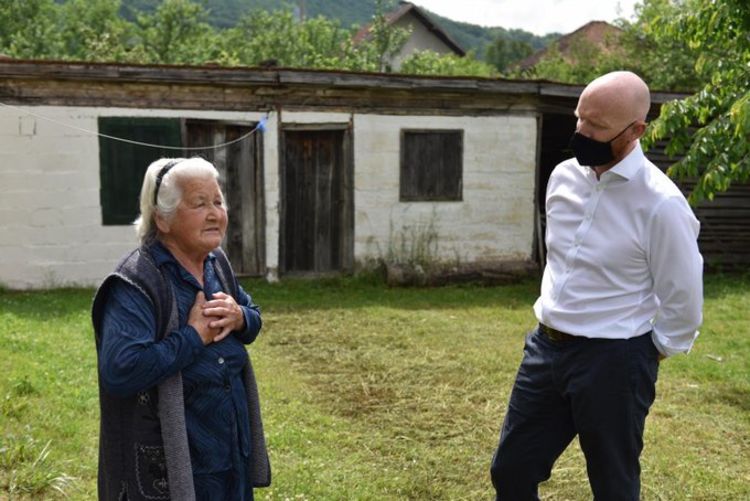COVID-19: Older people at risk in Bosnia and Herzegovina
Alert CV19 062
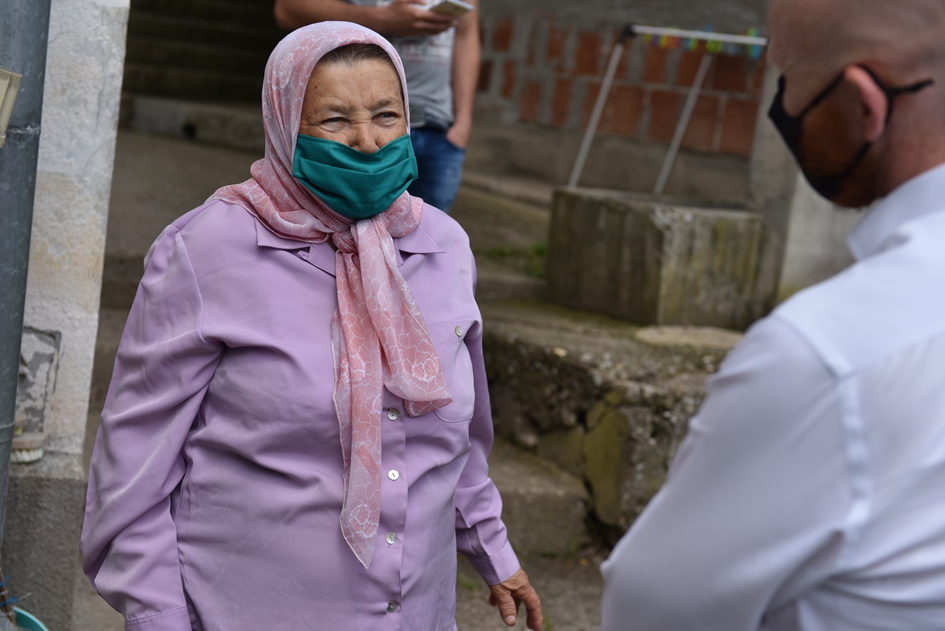
CONTEXT
Bosnia and Herzegovina (BiH) continues to struggle with the harsh consequences of the 1990s war. Unstable political leadership and tension between ethnic and religious groups creates an atmosphere of mutual distrust. The population is significantly decreased because of the war and its consequences, and with an unemployment rate of more than 30%, the economy is unstable. Now the country is facing the additional challenge of the COVID-19 pandemic.
CRISIS
The government struggled to slow the spread of the virus during the first phase of the lockdown and introduced a curfew for older citizens because they are at higher risk. It mandated that people 65 years of age and older should not leave their homes, even to purchase basic groceries. Due to this restriction, older people living alone were met with a difficult situation. Volunteers delivered basic groceries, which helped some. But, given that around 25% of older people in the country live under the poverty line, not all were in the position to afford what they needed, especially the necessary hygiene products.
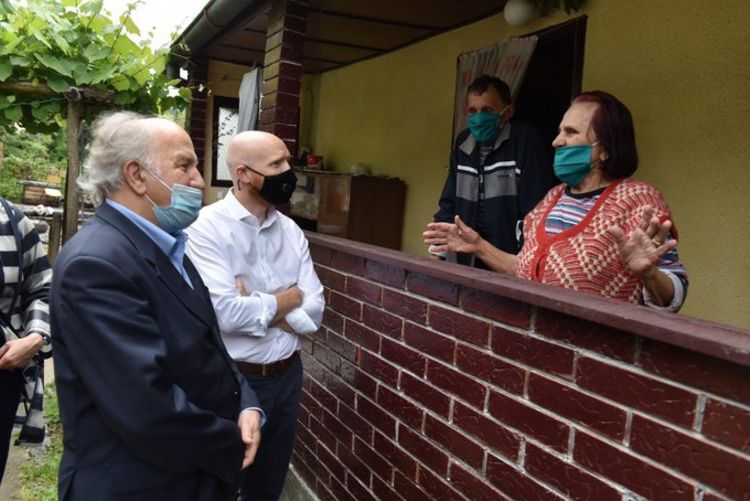
RESPONSE
To meet the immediate life-saving needs of isolated older people, Catholic Relief Services (CRS), with support from Start Fund COVID-19, implemented a project in collaboration with 15 cities and municipalities across the country. CRS and its partners distributed food and hygiene parcels. In addition, all recipients received printed materials with instructions on COVID-19 prevention measures.
In three weeks, 3,070 households with 6,171 household members received the needed assistance. Under strict government restrictions, and given their economic vulnerability, the assistance provided by Start Fund COVID-19 helped them to have enough food for two months without putting them at risk. The rapid provision of assistance to the most vulnerable was possible thanks to CRS’ networking with 15 local communities and their governments, representatives of local Social Welfare Centers, local Civil Protection Units, and with Red Cross, Caritas, and Merhamet local branches.
Because of years of conflict, the level of trust people hold in Bosnia and Herzegovina's systems has been shattered. However, the process of delivering assistance, which involved local governments, contributed to an increase in satisfaction by citizens and an enhanced feeling that they were not abandoned by their communities. It also contributed to a restoration of trust between citizens and local government. Transparency in the process of selecting recipients, along with local governments supporting deliveries, contributed to the accountability of local authorities toward their citizens. The transparent distribution of aid was also promoted by the UK Embassy and British Ambassador Matthew Field who delivered packages directly in two local communities.
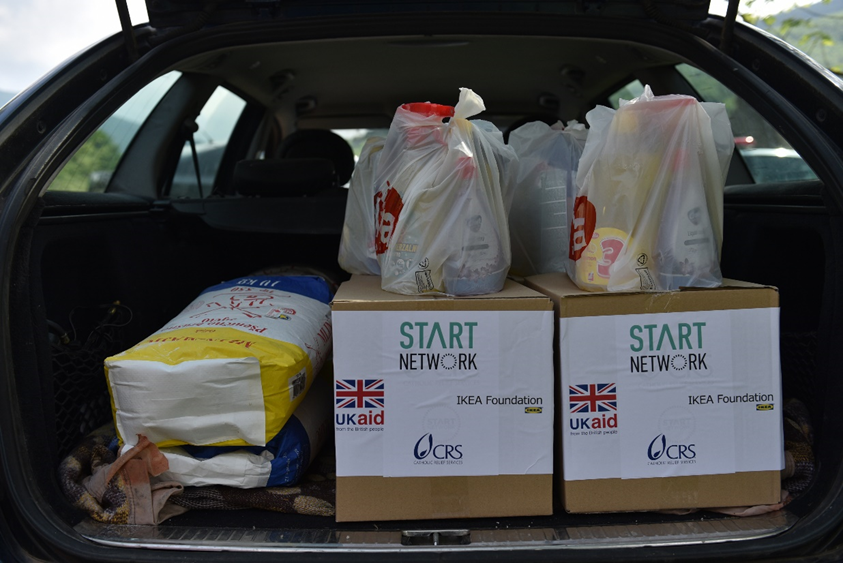
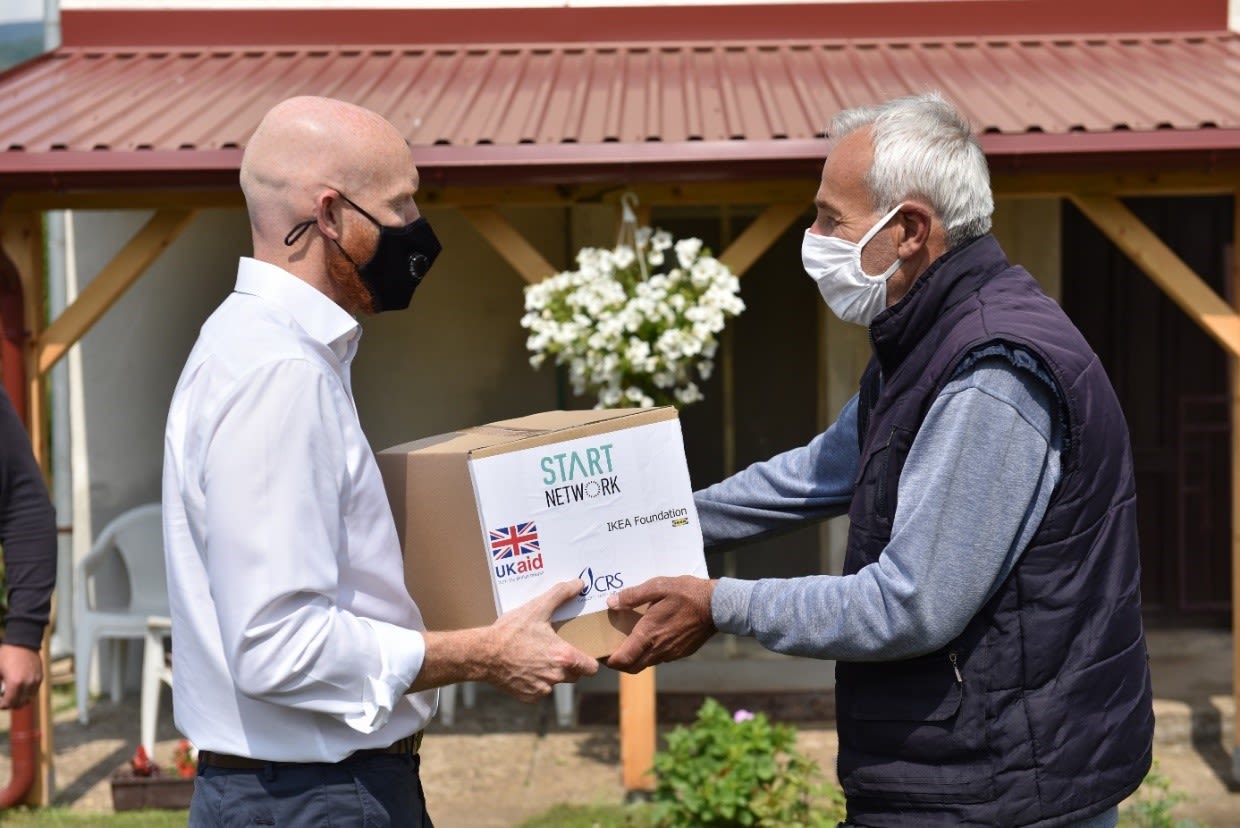
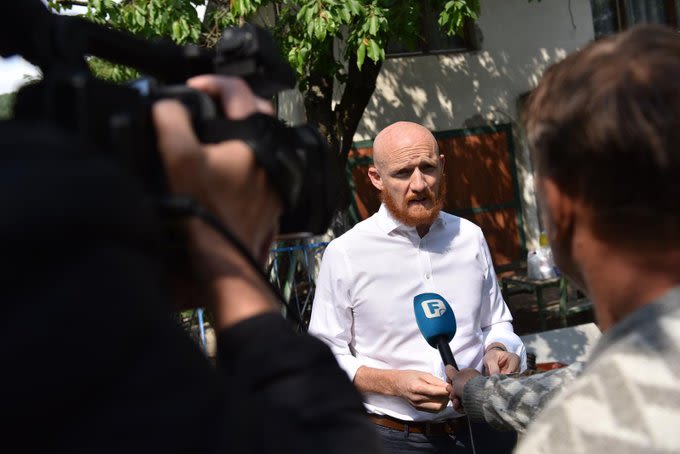
“Thank you for your assistance and understanding of our needs. Thank you for not forgetting us in these hard times. Thank you on behalf of our local community and all families who received the assistance.”
– Letter from the local government of one of the assisted communities, City of Prijedor
